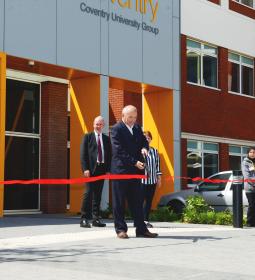Grammar and a large number of tenses, according to many people, greatly complicate learning English. But despite the many rules, the main and difficult task is the ability to speak a foreign language. You can have a rich vocabulary, know 16 tenses, and have a solid grammatical base, but spoken language inevitably needs to be practiced. Many people do not speak English because they believe they will make mistakes, pronounce words incorrectly and build sentences. It is important to overcome the fear of speaking a foreign language! This will help at least to achieve the fundamental goal of language learning - to speak with foreigners, and as a maximum - to develop self-confidence. This article has covered 5 basic tips to help you overcome language barriers and start speaking!

Comfort zone
Leaving your comfort zone will help you quickly overcome the language barrier and develop your speaking skills. Start listening to other music, visit English-speaking groups, set a foreign language as the main one on your smartphone. This way you will get used to his presence in everyday life and will not be very shy.
No grammar exercises
Grammar exercises will not help you speak English. After all, you do not go over all the rules and times in your head, but easily express your thoughts. Here and here it is enough to understand only the times used in communication. Despite the fact that there are 16 of them in English, only 4 are usually used in colloquial speech: Present Simple, Present Continuous, Future Simple and Past Simple. Study them, memorize the structure and use cases. Watch the videos to help you understand situations when and when to use. Additionally, you should pay attention to the articles.
Videos
Watching videos is the best way to improve your speaking skills. It's worth starting with videos on a topic of interest, recorded by native speakers. Pay attention to interesting speech patterns, manner of speech, how people in the video express emotions. Try to repeat the material you have viewed, imitating the characters of the recording - this way you will quickly master colloquial phrases and learn the correct articulation. If you find it difficult to perceive information by ear, then use the videos with English subtitles. This approach allows the brain to form a connection between how a word is heard and how it looks.
TED is an educational portal with instructional videos in English from the best lecturers in the world. If you don't know where to start, then take a look there - you won't regret it!

Reading and podcasts
Reading works in the original and listening to English-language podcasts can significantly increase your vocabulary. As a result, it will be easier for you to understand the interlocutor and speak naturally, and not in simple monosyllabic sentences. If you find it difficult to assimilate unfamiliar material, then read aloud: this makes it easier to remember unfamiliar words and phrases.
Communication
Chatting with a native speaker is the best way to speak English! It is worth starting gradually. Find a foreigner on social networks and start communication with correspondence, gradually switch to voice messages, and when you get used to an unfamiliar speech, you can also communicate via video. This will help you overcome your embarrassment. Conversation clubs for English learners will become an alternative communication option. The meetings of the participants are held both in real time and via video communication. Here you can chat on a variety of topics, practice interesting speech patterns, get used to unfamiliar speech, and have a good time.
PS: Interesting English phrases for communication
We present to your attention a selection of English phrases that will help keep the conversation going and make it livelier. Remember them and use them whenever you can.
- A little birdie told me - Bird whispered / Heard
- Cheer up! - Cheer up! Cheer up!
- I can't keep up - I can't keep up
- I'd better be off - I'd better go
- Things happen - Anything happens, it happens
- Can ' t complain - Not complaining. - Used as an alternative to Everything is really cool
- Fingers crossed! - Fingers crossed! - So they say when they express hope for a good outcome of events
- I didn ' t catch the last word - I didn’t make out the last word. - Used if you did not hear what the interlocutor said
- I don ' t know off the top of my head - It's hard to say yet. - Applies if you need more information
- I'm losing it - I'm going crazy. - Used as an alternative to I'm going crazy
- It is no big deal - A couple of trifles - So they say when you need to calm someone down and say that nothing terrible has happened
- Pull yourself together - Pull yourself together ! - The phrase is intended to cheer up the interlocutor
- That ' s a good one - Great joke! - The answer to a joke, it is possible with sarcastic overtones.










